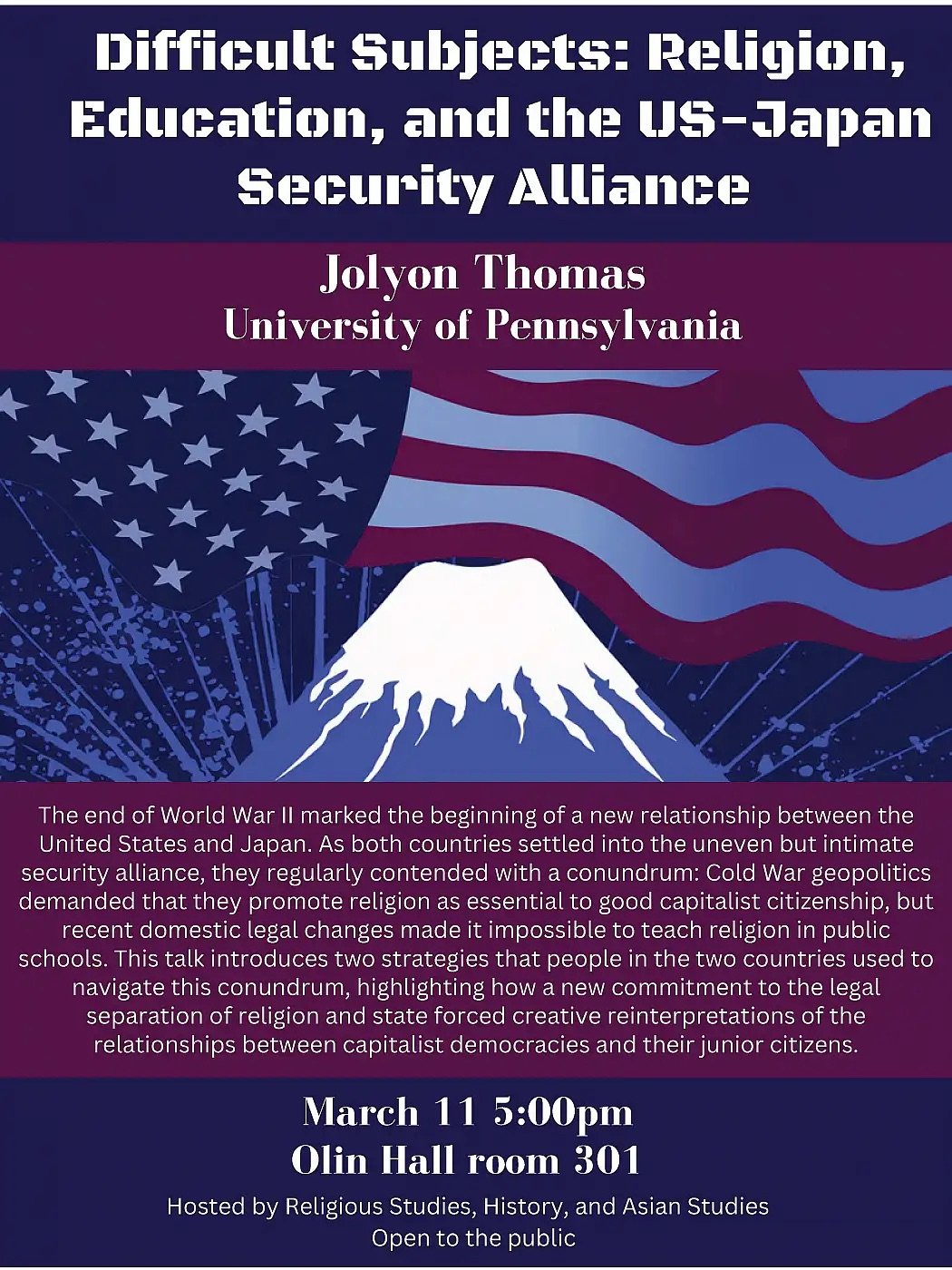The end of World War II marked the beginning of a new relationship between the United States and Japan. As both countries settled into the uneven but intimate security alliance, they regularly contended with a conundrum: Cold War geopolitics demanded that they promote religion as essential to good capitalist citizenship, but recent domestic legal changes made it impossible to teach religion in public schools. This talk introduces two strategies that people in the two countries used to navigate this conundrum, highlighting how a new commitment to the legal separation of religion and state forced creative reinterpretations of the relationships between capitalist democracies and their junior citizens.
Back to All Events
Earlier Event: March 11
Why Religious Studies?
Later Event: March 25
The Religion of Anime: A Medium-Sized Theory of Religion
